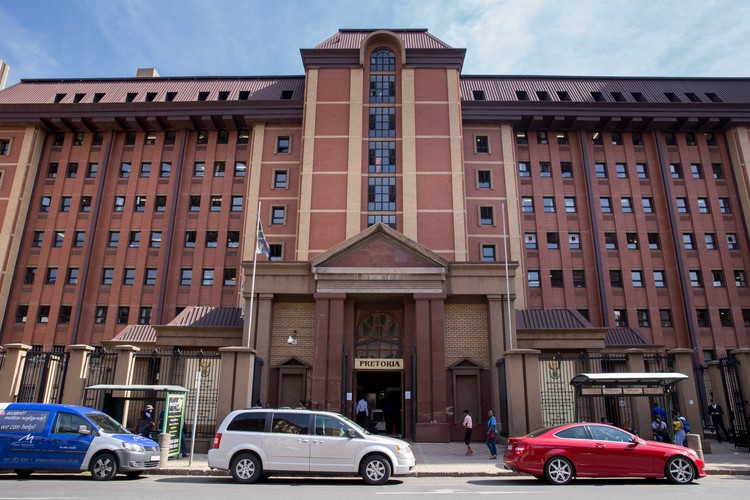Lotteries Act regulations to face legal challenge
Court will be asked to declare a section of the act unconstitutional
The SA National Editors’ Forum and Media Monitoring Africa are challenging parts of the Lotteries Act in court. Archive photo: Ashraf Hendricks
Regulations in the Lotteries Act that the National Lotteries Commission (NLC) has used to hide from accusations of fraud and corruption are to face a constitutional challenge in court.
GroundUp’s investigation into the Lottery since 2018 has uncovered corruption, maladministration and nepotism involving Lottery grants running into hundreds of millions of rands. But the investigation has been marked by the refusal of the National Lotteries Commission (NLC) to disclose details of projects funded by it, citing regulations in the Lotteries Act.
Now papers are to be served on Trade, Industry and Competition Minister Ebrahim Patel, who has oversight responsibility for the NLC, challenging the constitutionality of these regulations.
The application in the Gauteng High Court by the South African Editors Forum (SANEF) and Media Monitoring Africa (MMA) seeks to have a regulation in the Lotteries Act declared unconstitutional and invalid and set aside. Because the matter involves a constitutional issue, lawyers acting for SANEF and MMA, have filed notice of this with the court.
The papers have already been served on the NLC, United Civil Society in Action (UCSA) and GroundUp, who are all named as respondents. The service of the papers on the Minister is “underway”, according to Dario Milo, who is acting for SANEF and MMA. Both UCSA and the NLC claim that these regulations protect the confidentiality of recipients of Lottery grants.
But the papers make it clear that “relief” is only being sought from Patel and not from any of the other parties.
Three grounds are stated as reasons for challenging the constitutionality of the regulations:
- They are an “unjustifiable” limitation to the right to freedom of expression that is enshrined in Section 16 (1) of the South African Constitution;
- They are “unconstitutionally and impermissibly vague”;
- And, they are ultra vires - beyond the authority and powers - of the Lotteries Act.
Alternatively, SANEF and MMA are asking for a “publication in the public interest” clause to be inserted into the regulations.
Several organisations have joined the SANEF/MMA action as amicus curiae - Friends of the Court. They are Corruption Watch, Child Welfare SA, Epilepsy SA, SA Federation for Mental Health, SAVF, RATA Social Services, Give a Child a Family, Sinani KZN Programme for Survivors of Violence and The Teddy Bear Clinic for Abused Children.
In a legal opinion last month, Chief Parliamentary Legal Adviser Advocate Z Adhikarie found that the regulation being used by the NLC to withhold information about grants would not “withstand constitutional scrutiny”.
And under growing pressure from Parliament’s Trade, Industry and Competitions Portfolio Committee, the NLC finally released the grant details that it had withheld.
Kate Skinner, SANEF Executive Director, said the matter was important because the constitutional principle of access to information was “critical for democracy”. “We believe it is essential that public institutions are as transparent as possible.” She said the prohibitions in the regulations extended even to situations “in which the disclosure or publication of information would be in the public interest – for instance, in order to bring to light allegations of corruption or maladministration regarding the manner in which public funds are being spent.”
“This is unacceptable. Journalists must have the right to uncover corruption and mismanagement of these very important public funds.”
William Bird, director of Media Monitoring Africa, said that the regulation was “patently unconstitutional.”
“A failure to act against this regulation wouldn’t only allow some to try to use it again to hide their misdeeds, it would also signal to others in and outside of the state that the public doesn’t have a problem with corruption.”
Another “key reason” for challenging the regulations was the protection of “our basic rights”, Bird said. “Freedom of expression matters not just because it means the media can help hold the powerful accountable, it matters because it is central to democracy. Each time one of our journalists is threatened, our democracy is undermined. Challenging this regulation is therefore an essential aspect of protecting our democracy.”
Support independent journalism
Donate using Payfast

Don't miss out on the latest news
We respect your privacy, and promise we won't spam you.
Next: Municipality has gravely misunderstood its duties, court told
Previous: Cows graze among the dirty nappies on Uitenhage dumpsite
© 2020 GroundUp. This article is licensed under a Creative Commons Attribution-NoDerivatives 4.0 International License.
You may republish this article, so long as you credit the authors and GroundUp, and do not change the text. Please include a link back to the original article.

